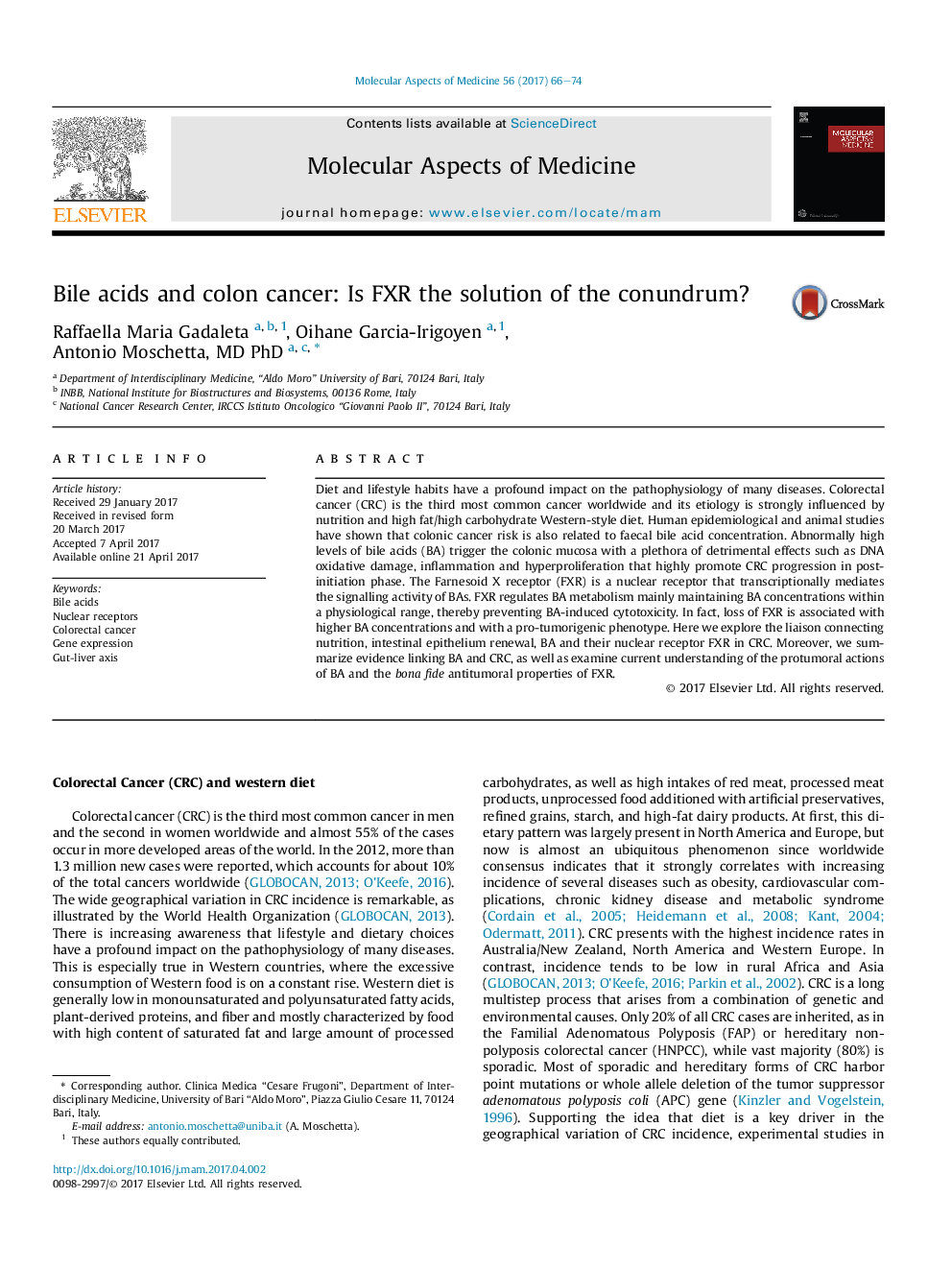| Article ID | Journal | Published Year | Pages | File Type |
|---|---|---|---|---|
| 5513815 | Molecular Aspects of Medicine | 2017 | 9 Pages |
Diet and lifestyle habits have a profound impact on the pathophysiology of many diseases. Colorectal cancer (CRC) is the third most common cancer worldwide and its etiology is strongly influenced by nutrition and high fat/high carbohydrate Western-style diet. Human epidemiological and animal studies have shown that colonic cancer risk is also related to faecal bile acid concentration. Abnormally high levels of bile acids (BA) trigger the colonic mucosa with a plethora of detrimental effects such as DNA oxidative damage, inflammation and hyperproliferation that highly promote CRC progression in post-initiation phase. The Farnesoid X receptor (FXR) is a nuclear receptor that transcriptionally mediates the signalling activity of BAs. FXR regulates BA metabolism mainly maintaining BA concentrations within a physiological range, thereby preventing BA-induced cytotoxicity. In fact, loss of FXR is associated with higher BA concentrations and with a pro-tumorigenic phenotype. Here we explore the liaison connecting nutrition, intestinal epithelium renewal, BA and their nuclear receptor FXR in CRC. Moreover, we summarize evidence linking BA and CRC, as well as examine current understanding of the protumoral actions of BA and the bona fide antitumoral properties of FXR.
